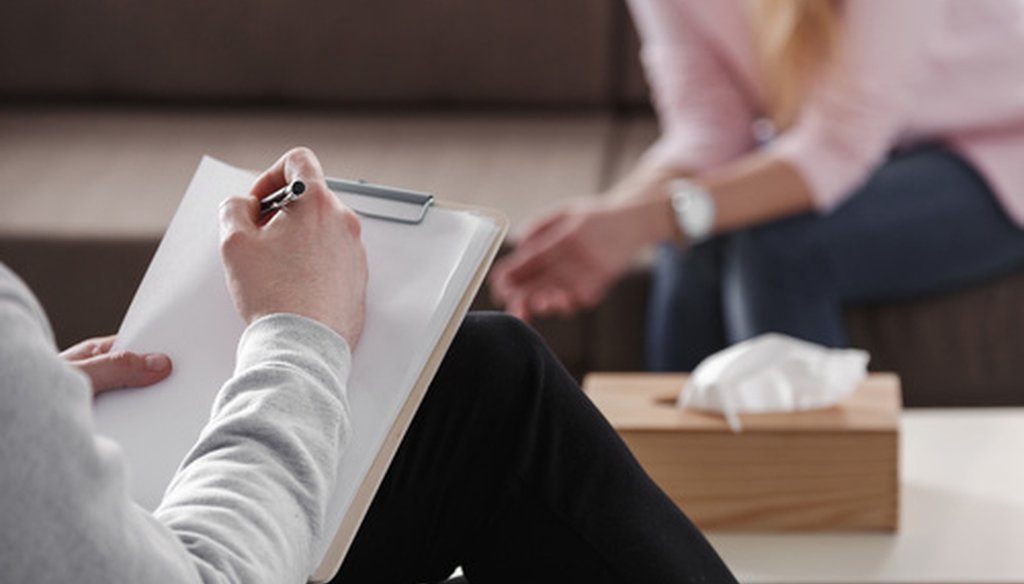

Our only agenda is to publish the truth so you can be an informed participant in democracy.
We need your help.


The Mental Health Parity and Addiction Equity Act says insurers must provide equal coverage of physical and mental health. The ACA made it a requirement for insurers to cover certain benefits which included behavioral health. (TNS).
The claim is backed by a report from a state office dedicated to youth mental health.
The same report reveals other gaps in youth mental health provider staffing.
Amid legislative debate over how to address Wisconsin’s mental health care gaps, state Rep. Jill Billings, D-La Crosse, said Wisconsin’s youth-to-school social worker ratio is nearly triple what experts recommend.
Billings made her claim in a Nov. 14 Assembly floor speech against a Republican-led bill that would have mandated Wisconsin’s Department of Public Instruction establish a mental health training program for school staff.
The bill did not provide additional money for school mental health resources, something Billings and other Democrats objected to.
"With school-based professional social workers, the recommendation is 400-to-1," Billings said. "And in Wisconsin, we’re almost triple that at 1,136 students for every one school social worker. Can you imagine trying to help kids in a school and those ratios are so out-of-whack?"
Is Billings right about the ratio?
When asked to provide evidence for her claim, Billings sent us the 2022 annual report from the Wisconsin Office of Children’s Mental Health, a state office that studies youth mental health issues.
The 2022 report found the ratio of students to school-based professional social workers to be 1,136-to-1, 284% higher than the 400-to-1 ratio recommended by the state Department of Public Instruction. Data for the claim is sourced from county-level health data collected by the state.
Those numbers match Billings’ claim on the Assembly floor. What’s more, they back up a number of other claims Billings made about Wisconsin "falling short" on youth mental health.
According to the report, Wisconsin has one community-based mental health professional for every 400 kids, nearly double the DPI-recommended 250-to-1 ratio. Additionally, the state has one school-based psychologist for every 826 kids, approximately 1.6 times higher than the DPI-recommended 500-to-1 ratio.
Additionally, the report estimated 75% of kids who receive mental health treatment access the care at school.
The report further detailed that accessing youth mental health care in any capacity depends on the financial ability to pay for treatment, transportation, reliable internet access and the ability of both parents and kids to leave their job or school for appointments.
"These are often insurmountable barriers for low-income, rural, or single-parent families," the report read.
Billings claimed Wisconsin’s youth-to-social worker ratio is nearly three times higher than recommended levels.
When asked to support her claim, Billings provided an official state report that confirmed her claims and provided concrete evidence for statewide shortages of other youth mental health professionals.
We rate this claim True.
Wisconsin Office of Children’s Mental Health, Our Brains are Wired for Social Connections, 2022
WisEye, Assembly Floor Session, Nov. 14, 2023
Wisconsin Department of Public Instruction, School-Based Mental Health Professionals in Wisconsin, March 2023
In a world of wild talk and fake news, help us stand up for the facts.
